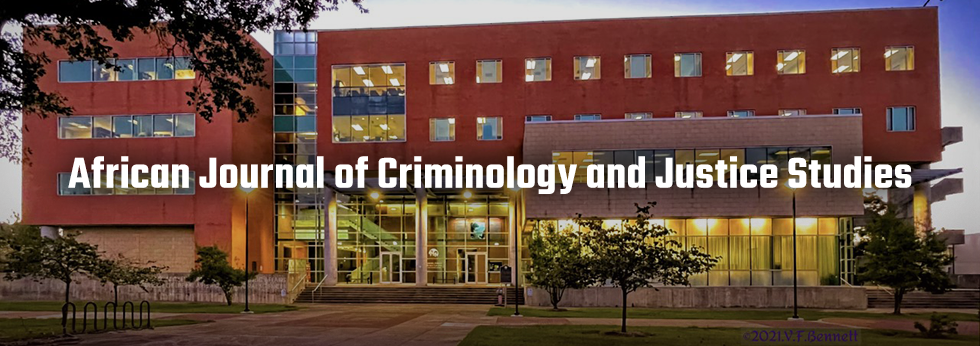A Critical Analysis on Offenders Rehabilitation Approach in South Africa: A Review of the Literature
Abstract
The South African Department of Correctional Services (DCS) has a constitutional mandate to provide rehabilitation programs that address offenders’ criminal conducts. The treatment approach currently used to deliver this mandate is grounded on the Needs-Based Model where dynamic factors associated with recidivism are systematically targeted in treatment of offenders’ criminal behaviors. But the reality of the matter is that there are systemic problems that challenge the DCS both conveying its moral messaging and fulfilling its legal commitment on the rehabilitation of offenders. The DCS mission is far to be accomplished due to its failure to reduce recidivism. Along these lines, it is subsequently important to develop and to implement new approaches that meet the goals of the South African Green and White Papers on Corrections. In this manner, this article analyses the current DCS approach on offenders’ rehabilitation by taking into consideration programs used to reduce recidivism and proposes alternative pathways for an effective offenders’ rehabilitation approach. This article demonstrates that for successful offenders’ rehabilitation, the DCS must introduce new offenders’ rehabilitation programs based on Restorative Justice and on Good Lives Model approach. Considering post-Apartheid governments’ commitment to human rights, we suggest these two approaches to offenders’ rehabilitation as the conceptual resources to resolve the above issues faced by the DCS to deliver its mandate on offenders’ rehabilitation.
Recommended Citation
Murhula, Patrick Bashizi Bashige and Singh, Shanta B.
(2019)
"A Critical Analysis on Offenders Rehabilitation Approach in South Africa: A Review of the Literature,"
African Journal of Criminology and Justice Studies: Vol. 12:
Iss.
1, Article 12.
Available at:
https://digitalscholarship.tsu.edu/ajcjs/vol12/iss1/12


